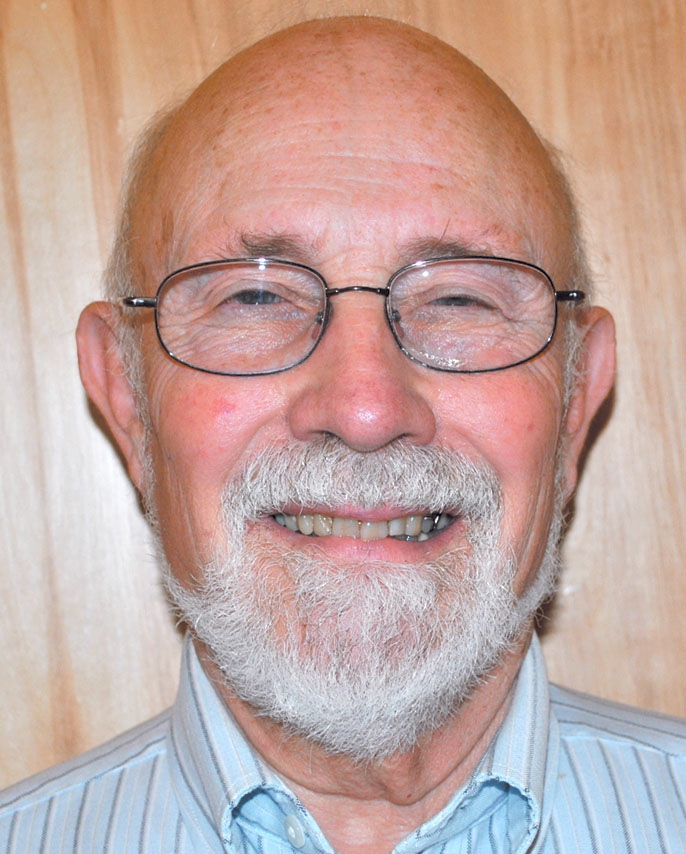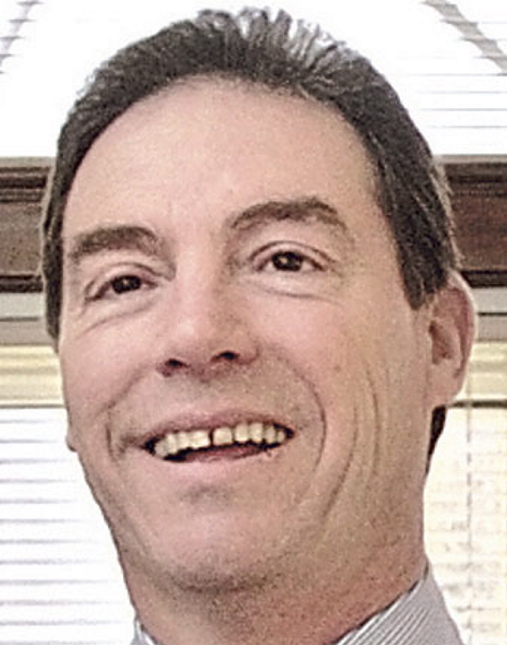WATERVILLE — Mayor Karen Heck has a mantra she recites frequently at most City Council meetings: Give the towns and municipalities the revenue sharing they deserve.
She often chastises state government for that loss of promised municipal revenue sharing funds and urges residents to call or write their legislators to complain about policies that strap Waterville’s ability to pay for needed services.
Revenue sharing, Heck says, is critical in providing the services the city needs. But over the past several years, Waterville has been spending its surplus funds to make up for the loss of revenue sharing dollars from the state.
City Manager Michael Roy says the city has lost $5.7 million in revenue sharing since 2009.
“At one time, we had 21 percent of our budget in surplus — $10 million, and now it’s $6 million,” Roy said. “We’re at 12 percent, so we’re below the recommended amount, which is two months of operating expenses.”
Maintaining a healthy surplus — Standard and Poor’s, which rates the credit worthiness of local governments, recommends a surplus of 16 percent of a city’s operating budget — not only fills a gap during a financial emergency but sends lending institutions a signal that the city is in good financial standing.
“The danger is with new borrowing and being able to secure favorable interest rate for the money we have to pay back,” Roy said. “Our level of surplus is the first thing they look at to determine the financial health of any community.”
Waterville faces a tenuous financial situation as it heads into next year, Roy said.
“I think the most difficult decision on that will be next spring when we have to decide if we want to go below 12 percent or not,” he said.
Waterville’s increasing reliance on taking money from prior years to fund current city programs is the result, officials say, of cutbacks in state revenue sharing assistance originally enacted as a way to share broadly-based state tax revenue with local communities that depend primarily on property taxes.
But state help for local communities has dwindled.
Municipal revenue sharing funds include money from state taxes which have a portion of the funding earmarked for local communities. Such taxes as the individual income tax, corporate income tax, franchise tax on financial institutions, and part of the service provider tax, and sales and use taxes are “revenue sharing taxes” from which the state promised to give cities and towns a share.
Maine law says local communities are to receive 5 percent of revenue sharing taxes collected. Each municipality receives a percentage of the total amounts to be distributed based on a weighing of its population and local property tax burden factors, according to the Office of Fiscal and Program Review.
But there is a caveat. The law also requires the state to balance its budget and allows the state, if it can not balance the budget, to use revenue sharing money to balance it.
The program started in 1971, and the state started giving a share to municipalities beginning in 1973.
In the last biennial budget, Gov. Paul LePage recommended no revenue sharing money be distributed to municipalities, but the state Legislature enacted a bill that prohibited taking another $40 million in revenue sharing funds; thus, $125 million was approved for municipal revenue sharing.
State Rep. Thomas R.W. Longstaff, a Democrat who represents House District 77, which is part of Waterville, says one of the things people don’t hear much about is that the law requiring the state to share a certain percentage of sales tax money with municipalities also takes away from municipalities the right to impose taxes on their own.
“Waterville and Bangor, for example, can not enact local sales tax,” he said. “Municipalities can’t impose taxes unless we pass a law.”
Heck recommends that the state increase sales and lodging taxes to spread the burden around and raise money from out-of-state tourists who come to enjoy Maine’s scenic waterways, eat in its restaurants and spend money in shops, and who also use the state’s roadways, emergency services and police and fire protection. Tourists would pay the extra cost without batting an eye, she says.
“We should be doubling the lodging tax,” Heck said. “Who calls up Boston to find out what their lodging tax is? Nobody, and it’s 15 percent by the time you get out of the city. Our brand is ‘Vacationland.’ People come here. They’re not calling up to find out what the sales tax is or the lodging tax.”
Heck even suggests raising taxes during the six-month tourist season and then lowering it afterward.
While the state increased the sales tax from 5 percent to 5.5 percent for a two-year period, Roy says he thinks it needs to be raised further.
“The sales tax is a much fairer and progressive form of taxation,” he said. “Property taxes have no bearing on the ability to pay. You get your tax bill and can’t afford to pay it, you’re pretty much out of luck. Sales taxes — people don’t have to pay them.”
He said, for instance, if someone cannot afford an item, he simply does not buy it.
“Plus, 18 percent, as I understand it, of our sales tax burden is exported to people who visit our state,” he said. “Eighteen percent of revenue comes from people visiting Maine. They should help to increase the revenue for state revenue sharing because when they’re here, they use the roads and benefit from fire, police, rescue services. They don’t pay anything. A sales tax increase would be a way for out of state visitors to Maine to help pay for the cost of road repair, fire, police and public safety services.”
Roy does not buy into the idea that the state should use municipal revenue sharing money to help balance the state budget.
“I think that’s what you term the golden rule. They have the gold and they’re making the rule. They can always fall back on that so-called exception of the law, but I don’t think that’s acting in good faith.”
The state Legislature’s contentious debates over a state budget added to the problem, Longstaff said.
“The problems for municipalities associated with the decrease in revenue sharing were exacerbated by the fact that the process of adopting a supplemental budget was complicated and contentious and took a good deal of time,” he said. “The result was that many municipalities were at a point where they needed to prepare and adopt their budgets while there was no precise information from the state as to the amount of money that they would receive as revenue sharing funds.”
To balance the budget, the state increased the sales tax a half a percent and raised the tax for some purchases such as prepared food and lodging by a larger percentage, he said. The law includes a sunset clause whereby the increases are in effect for only two years unless lawmakers vote for an extension.
“While, as many argue, the sales tax may be a fairer, progressive rather than regressive tax, simply increasing the sales tax will not provide any additional revenue for municipalities unless a part of the revenue from increased tax is specifically earmarked for distribution to municipalities under the revenue sharing program,” he said
But Longstaff says lawmakers can find other ways to make sure local governments get the revenue sharing funds they are due.
“I think we need to look at our budget more carefully and find a way, if we can’t meet our numbers, to do better with revenue sharing than we do,” he said.
The Legislature could also pass a law to allow municipalities to impose their own sales tax, but he wonders aloud how that would be received.
“In some ways that’s a reasonable idea, but if the state has already raised taxes on meals, is this a time to raise it more?”
The state can look for places in the budget where there may be savings and places where there may be waste, he said.
“One of the things I would look at — we hear a lot about rampant welfare fraud, but we put into the budget last year a lot of money to allow the state to have additional hands to investigate and prosecute welfare fraud. I think the number of cases they actually prosecuted is 13 and the amount they got back was less than $100,000.”
When Longstaff served as a Waterville city councilor and LePage was mayor, the city did not raise taxes because it used surplus to fill the gaps, he said.
“Now, we’re closer to the margin, so there’s less to use,” he said.
State Rep. Henry Beck, a Democrat representing House District 76, which includes part of Waterville and Oakland, says the revenue sharing situation is difficult and he is frustrated, right along with Roy and Heck. But the fact that LePage proposed no money for municipal revenue sharing in the biennial budget and the Legislature still came up with $125 million is a better scenario than if the municipalities got nothing.
“We have to sort of recognize and appreciate that the situation is far from perfect, but it could have been much worse,” Beck said. “In some respects, you can’t get blood from a turnip, and there’s not money floating around, and everybody and every sector and constituency is feeling the pain of shortfalls.”
Beck pushed for adoption of a budget amendment to push for more revenue sharing, but it failed. He said towns and cities can try to make up for the loss of revenue sharing by consolidating services and finding for ways to get greater contributions from tax-exempt institutions and organizations, but he does not think there would be support in the Legislature for increasing sales taxes beyond the temporary increase already passed.
“I wish I could wave a magic wand, but there’s not enough money to go around and there’s not the political drive for further tax increases,” he said.
The state can certainly find efficiencies in areas such as human services, but finding enough money to make a difference is difficult.
“We’re at a point where we have to do the best we can with what we’re dealt,” Beck said. “While the Waterville delegation is very sensitive to the burden on property taxpayers, when it comes to municipalities, this is a time of shared sacrifice.”
State Sen. Colleen Lachowicz, who represents Senate District 25, which includes Waterville, Winslow, Albion, Benton, Clinton, Detroit, Pittsfield and Unity Township, says communities count on revenue sharing to pay for schools, roads and city services.
But so much of the city’s property is tax exempt that it makes covering the loss difficult, she said.
Often people want to see state spending cut, but do not want to lose services that money represents, according to Lachowicz.
“I think we try to save money where we can, but I think we have to be honest. There are costs that we have. It’s an older state and our health care costs are greater than states with a younger population.”
Amy Calder — 861-9247
Twitter: @AmyCalder17
Send questions/comments to the editors.





Success. Please wait for the page to reload. If the page does not reload within 5 seconds, please refresh the page.
Enter your email and password to access comments.
Hi, to comment on stories you must . This profile is in addition to your subscription and website login.
Already have a commenting profile? .
Invalid username/password.
Please check your email to confirm and complete your registration.
Only subscribers are eligible to post comments. Please subscribe or login first for digital access. Here’s why.
Use the form below to reset your password. When you've submitted your account email, we will send an email with a reset code.